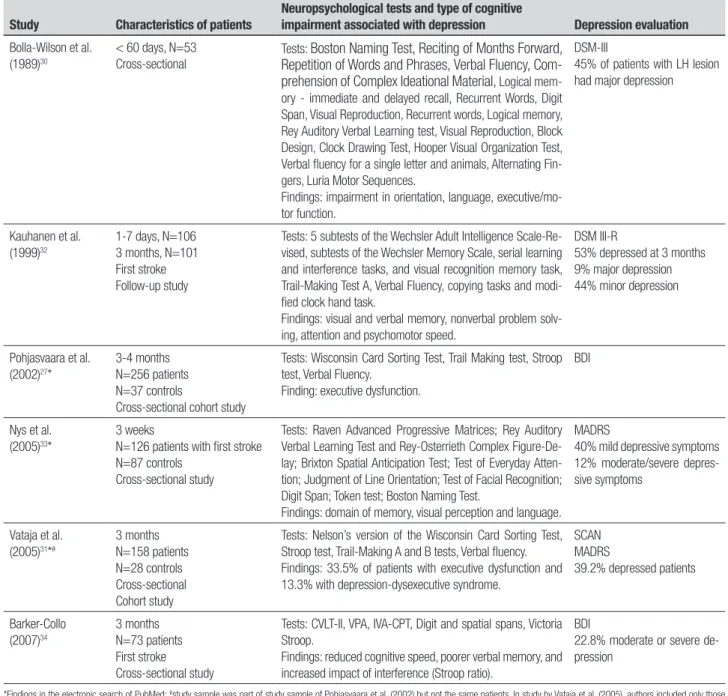Dement. neuropsychol. vol.6 número3
Texto
Imagem

Documentos relacionados
he precise mechanisms by which MIs cause cognitive impairment are not well known, but one plau- sible explanation is that they are widespread and ac- companied by difuse
he high number of VP patients in Brazil was probably related to the well-established vascular risk factors such as increased age (both studies were in elderly cohorts),
Such epidemiological studies of vascular- related dysexecutive MCI would advance our under- standing of the role of CVD in early stages of cognitive impairment, its predictive
AD: axial diffusivity; ADC: apparent diffusion coefficient; CC: corpus callosum; CN: cognitively normal; FA: fractional anisotropy; IFOF: inferior frontal-occipital fasciculus;
After cognitive evaluation, 4.6% were diagnosed as CIND (cognitive impairment no dementia) and 12.2% had a diagnosis of dementia (probable vascular dementia in 20 patients and
Objective: To investigate the diagnostic value of subtests of the NEUROPSI battery for differentiating subcortical vascular dementia (SVaD) from Alzheimer’s disease (AD).. Methods:
In patients with subcortical ischaemic vascular dis- ease, hippocampal atrophy afected cognitive perfor- mance and functional status, but not most behavioral
nial CT scan involving a sample of patients with heart disease, it was shown that the presence of brain atrophy was independently associated with Chagas disease, even